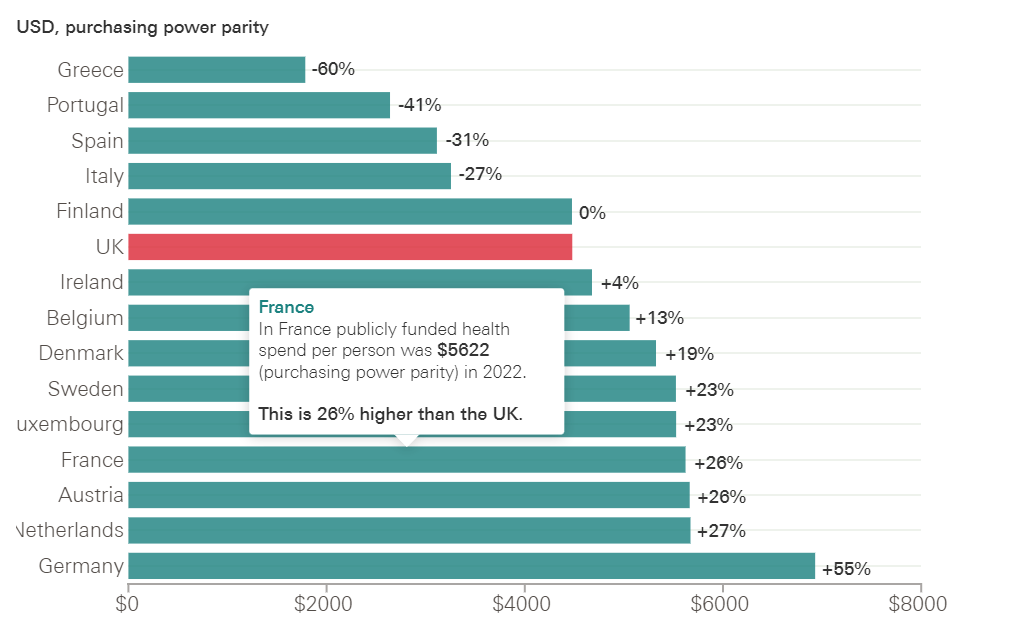How much does the UK spend on health care compared to Europe?4
The REAL Centre’s recently published projections describe a growing funding need for health services well in excess of the main political parties’ manifesto pledges. An extra £38bn a year by the end of the next parliament (2029/30) would enable the NHS in England to meet growing demand and improve standards.1 This projected increase is equivalent to a 17.4% rise spend per head compared with this current year (2024/25).
But how big is this rise? The chart below provides useful international context. It shows UK health care spend per head in 2022 compared to each country in the EU14 in consistent currency (USD purchasing power parity).2 In 2022, nine of the EU14 countries spent more on health care per head than the UK and six invested over 20% more. A 17.4% rise in spending would put the UK almost on a par with what Denmark spent on health care in 2022, and still short of current levels of investment in France, the Netherlands and Germany. As these countries also face cost pressures from the impact of an ageing population, they are all also likely to have increased spending by the end of the decade.
The UK spends well below countries like France, the Netherlands and Germany on health care

What does this tell us about how much we can afford to spend? Some countries, like the Netherlands and Germany are wealthier than the UK (they have higher GDP per head3). In 2022, GDP per head in Germany was 16% higher than the UK, while the Netherlands was 29% higher. This means they can afford to spend more on health. If we were in the same position economically, the projections we set out last week would feel less daunting. The size of the pie is bigger, so even if these countries spend the same share of their national income on health as the UK, the level of spending is higher.
Even with a difficult economic position, investing more in health is still possible. It just creates more challenging political and economic trade-offs: France invested 26% more per head than the UK in health, despite their economic performance being similar to the UK’s, with a GDP per capita 1% higher than our own.

